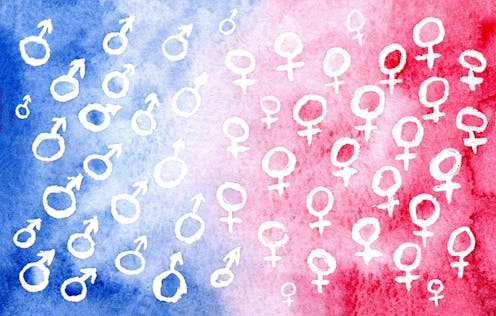Biological sex is far from binary − this college course examines the science of sex diversity in people, fungi and across the animal kingdom
- Written by Ari Berkowitz, Presidential Professor and Director of Graduate Studies, Biology; Director, Cellular & Behavioral Neurobiology Graduate Program, University of Oklahoma

References
- ^ Uncommon Courses (theconversation.com)
- ^ simple and binary (www.pewresearch.org)
- ^ behavioral neurobiologist (scholar.google.com)
- ^ focused my reading and writing (theconversation.com)
- ^ on the biology of sex (www.psychologytoday.com)
- ^ course on biological sexual diversity (ari.oucreate.com)
- ^ why sexual reproduction evolved (doi.org)
- ^ still hotly debated among biologists (theconversation.com)
- ^ asexual reproduction (openstax.org)
- ^ nonhuman sexual diversity (www.ucpress.edu)
- ^ thousands of sexes (doi.org)
- ^ reproduce asexually most of the year (doi.org)
- ^ different times of their lives (doi.org)
- ^ intersex crayfish (doi.org)
- ^ female spotted hyenas (doi.org)
- ^ a few small (doi.org)
- ^ brain structures in vertebrates (doi.org)
- ^ most people are mosaics (doi.org)
- ^ intersex people (doi.org)
- ^ chromosomes and reproductive organs (doi.org)
- ^ some typically female and some typically male characteristics (www.ted.com)
- ^ surgery to “correct” their genitals (aeon.co)
- ^ who should be allowed (www.nytimes.com)
- ^ to compete in (doi.org)
- ^ girls and women’s athletics (theconversation.com)
- ^ intersex infants (theconversation.com)
- ^ inclusive in their teaching (theconversation.com)
Authors: Ari Berkowitz, Presidential Professor and Director of Graduate Studies, Biology; Director, Cellular & Behavioral Neurobiology Graduate Program, University of Oklahoma



